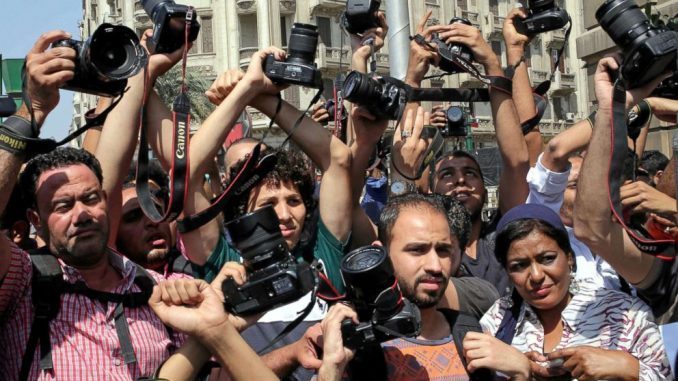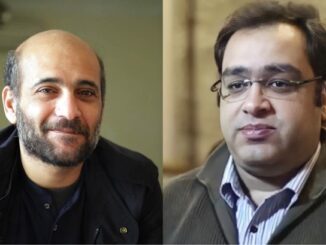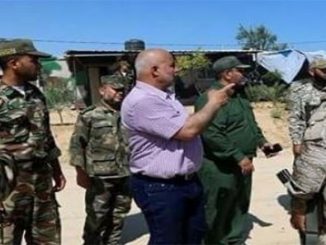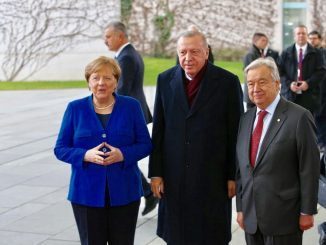
Western correspondents get to choose when they face danger. Journalists in Egypt deal with it every day – Richard Hall’s Independent Article
There are no safety provisions for independent journalists in Egypt and other authoritarian countries. At any moment they might be taken away, never to be heard from again.
Last Sunday afternoon, journalists at the Egyptian news outlet Mada Masr were working at their Cairo office when a large group of plain-clothed security personnel stormed into the room.
The men, who refused to identify themselves, started collecting laptops, phones and ID cards, before gathering the 16 journalists into one room.
Three of the journalists, including the outlet’s editor, were then taken away.
In Egypt, these scenes are an all too familiar occurrence for people who work in media. The country is one of the world’s biggest jailers of journalists. It currently ranks 163rd out of 180 countries in the Reporters Without Borders (RSF) World Press Freedom Index.
The security services increasingly lock up dissidents, including journalists, on vague charges of publishing false news and being part of terror organizations. Several international correspondents have been arrested and deported, or barred entry to the country. At least 20 journalists have been detained since September in what RSF described as “the biggest wave of arrests since 2014”.
Egyptian journalist Esraa Abdel Fattah, who was among at least seven journalists arrested in the aftermath of anti-government protests in October, said she had been tortured in detention, including being beaten, hung from handcuffs and strangled.
Most of Egypt’s state-run and private media is heavily policed by the authorities, or else practices self-censorship for fear of repercussions. The state has banned hundreds of websites belonging to news organisations, including Mada Masr and human rights groups.
Consider, for a moment, the bravery it takes for its journalists to continue to go to work every day under these conditions.
Mada Masr is among the last few independent news outlets in the entire country. It continues to produce journalism that challenges an authoritarian machine that is out to crush all dissent.
And that is why it was raided last week. A few days before the police arrived, the website had published a story about the son of president Abdel Fattah al-Sisi having his duties reassigned. Mahmoud al-Sisi, the story said, was being sidelined after a string of failures in his role as a senior official in Egypt’s General Intelligence Service.
On Saturday night, Mada Masr employee Shady Zalat was taken from his home by police. The next day, security services arrived at the office.
When I heard the news about the raid at Mada Masr’s office I had only recently returned from a trip to northern Syria. That part of the country is what is described as a “hostile environment”, and a litany of precautions are taken and calculations made before embarking on such a trip. But there is a huge difference between dropping into a war zone and what the journalists of Mada Masr do.
Western correspondents, for the most part, get to choose when and how much danger they experience. However bad the places they report from, there is always an off-ramp.
There is no such thing for independent journalists in Egypt and other authoritarian countries. At any moment they might be taken away, never to be heard from again.
That is precisely what the three Mada Masr journalists thought was about to happen to them last Sunday.
In her account of the police raid, Lina Attalah, Mada Masr’s editor, describes the moment she and her two colleagues were being driven away in a van. It’s a poignant moment.
“In the police truck, my colleagues Rana Mamdouh, Mohamed Hamama and myself were handcuffed to each other. We used the tight physical connection to press on each other’s hands, a gesture of it will be fine, we will be OK. And as our practical minds started doing calculations of what needs to be done (who do we tell where they have taken us, what can I do with the Christmas plans I promised my brother, that notoriously long draft report of our year’s work that has not been saved on my abducted computer, etc…), both Rana and Mohamed kept muttering to me: No place for guilt. We are here by choice. No place for guilt.”
As it happened, the van turned around on the way to the police station and they were released. Zalat, too, was let go from detention.
But just two days later, three more journalists were arrested: Solafa Magdy, her husband Hossam al-Sayyad, and Mohamed Salah, were taken from a coffee shop. They now face charges of joining a terrorist organisation and publishing fake news.
By: Richard Hall, The Independent’s Middle East correspondent in Beirut. The article was published on The Independent on 1 December 2019.



